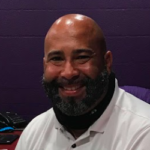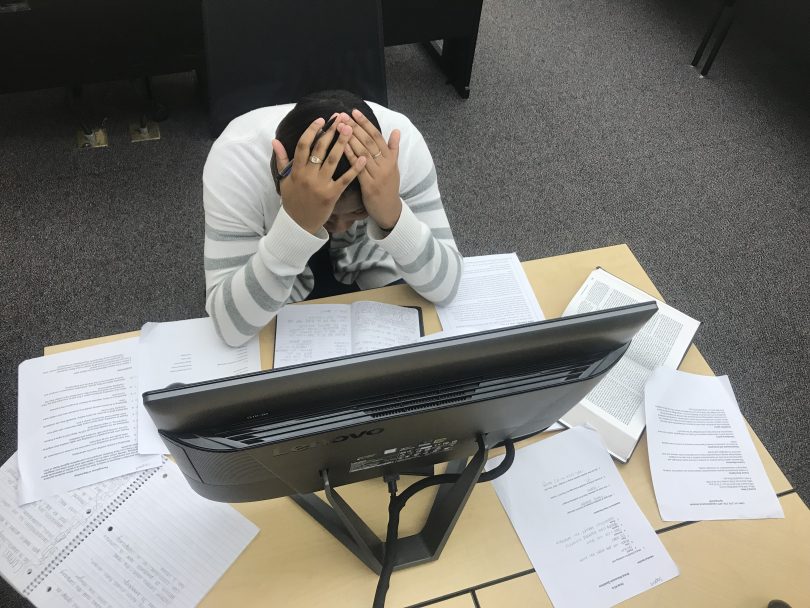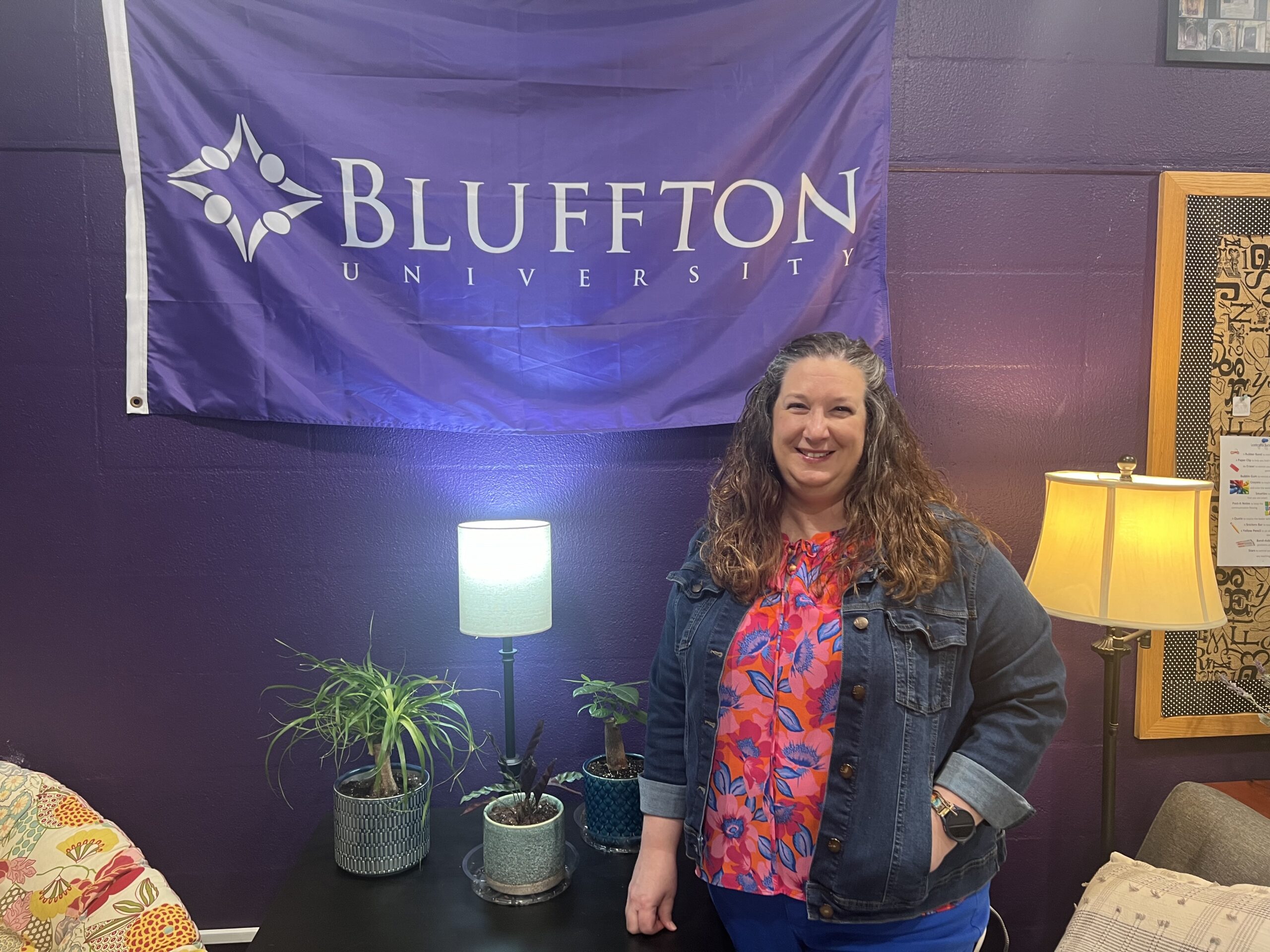By Bria Tijerina
Bluffton University students claim that they are under a lot of stress during the final weeks of the semester. Coping can look different for everyone and dealing with stress can be difficult at times, but knowing the right tools and coping mechanisms can help you overcome your anxiety.
Noah Heiing is a junior who holds many leadership positions on campus such as, being an RA and president elect for Student Senate.
Heiing shares some of the things he does to practice self-care when he begins to feel overwhelmed.

Heiing posing with his dog Nelson in the middle of the pit in Ropp Hall, Photo by Payton Stephens.
“When I feel myself starting to get overwhelmed when working on homework, I will just simple take a break,” he said, “This can be anything from playing video games, playing with my dog, going for a walk, watching TikToks, or just lying in my bed. I think taking breaks from work is beneficial for me so I don’t feel burnt out and can do my work better.”
Heiing said he also began to talk about how stressful and hard it can be on students. There is a lot of pressure and each class either has a final exam or a large project that is due before the semester is over. This is a very difficult time for most students mentally, emotionally and even physically.
“It is honestly so hard to manage my time every semester,” said senior Travon Mason. “I want to be successful and perfect in everything I do and turn in, but then that causes the stress to just build up until I just break down and then I can’t do anything until I calm down again.”

Travon Mason, Witmarsum file photo
Mason also said, “The professors here are very understanding, anytime I feel like it’s too much and there is no way I can get an assignment done on time I simply talk to them and usually they will move back the due date. This is because of how much I have going on during that time frame.”
Lou Westcott follows the advice of Brené Brown whose research was the foundation of a Civic Engagement Day presentation. Westcott presented with Marcella Ciccotelli who also studied Brown’s research on emotion. They explained places you go when things are uncertain or too much during their workshop. When things are uncertain or too much, that tends to give people a lot of anxiety, said Wescott and Ciccotelli, adding that people typically either go to worry or avoidance when dealing with stress and anxiety.
Ciccotelli further explains that practicing worry or avoidance is not beneficial for yourself, and instead you should find other healthy, beneficial ways of coping.

Olivia “Lou” Westcott, Witmarsum file photo
“Sometimes I like to talk to my friends or write it down and let it all out. It might sound cheesy, but if it’s super stressful, sometimes I even just rip it up,” Westcott said.
Desmond Gist, a junior who is also a part of Bluffton’s track team said, “Some students on campus struggle so much these last few weeks of the semester because of the workload that is thrown at us and they don’t know how to cope with stress well.”
Gist then gives us some things that he does that others might be able to do too, “Track always help me destress, because during that time I’m only focusing on running. But I also like to hang out with friends, play video games, watch tv, and just relax whenever I need a break from all the assignments.”
According to Harvard Health Publishing some ways to help cope with stress and anxiety are:
-
Approach don’t avoid.
-
Practice self-care.
-
Find resources on campus.

Tyson Goings, Witmarsum file photo
Tyson Goings Director of Diversity, Equity and Inclusion and Director of Residential Life and a counselor at Bluffton University at Bluffton University said, “Towards the end of the semester a lot of students begin to feel stressed and overwhelmed not with just the workload that is given to them by their professors; but also the stress of going home and what they are going to do this summer. Especially if their home life isn’t great.”
Goings said, “Prioritizing is a great way to help maintain stress. Whether students make a list or have a planner, making a list of what you need to do when can help whatever it is you need to do seem more manageable.” Goings also said, “There are many different resources available on campus to help students decompress, such as, free counseling, students can checkout kayaks or fishing poles, the nature preserve, the workout room in Sommer center, and hammocks for people to checkout and go to the hammock park. And those are the main resources we have for our students.”







